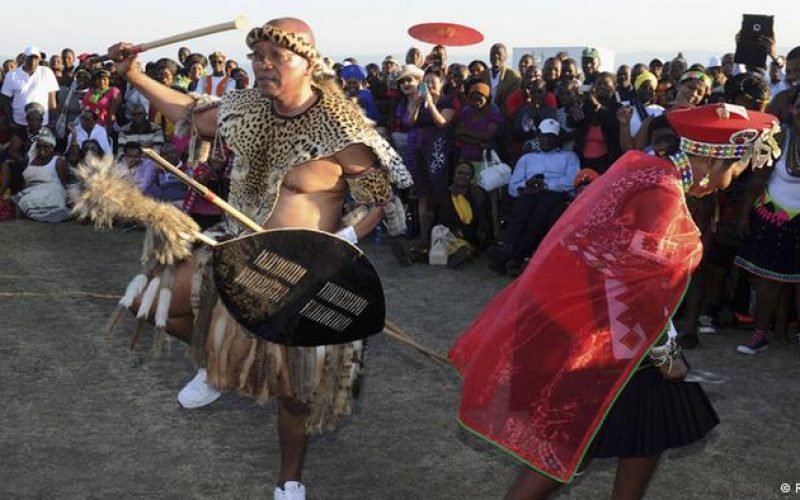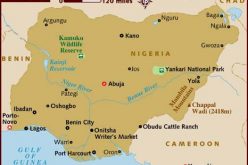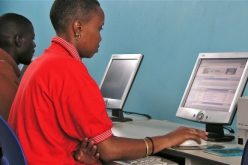
President Jacob Zuma, seen here at his sixth wedding, is known as a traditionalist in marital matters
DW.DE – How many cows are you really worth? Paying lobola, dowry, or bride price is a custom in many parts of the world and calculating it is steeped in tradition. But South Africa now has the Lobola App. DW met the developer.
Lobola is the name given to bride price in the Zulu, Xhosa, Ndebele and Swazi cultures which span the southern tip of Africa. It is a custom in which the family of the bridegroom man pays the family of the bride for her hand in marriage and has been in existence for centuries. The bride’s family, or in most cases her male relatives, decides how much to demand from the bridegroom in the form of cash and live cows.
However, Robert Matsaneng, a 26-year-old South African software developer, has however taken Lobola to another level. He has created a Lobola calculator that has generated excitement in South Africa and beyond. The Lobola app is able to calculate how much a woman is worth and the number of live cows that should be paid in addition to the cash.
Lobola plays a huge role in South African society. The nephew of South Africa’s President Jacob Zuma, Khulubuse Zuma, for example, paid 100 cows to the family of the Swazi princess, Fikisiwe Dlamini. And a 2013 romantic comedy, “Fanie Fourie’s Lobola”, told the story of a white Afrikaans-speaking South African, who was suddenly confronted with the prospect of paying Lobola.
Unlike the traditional haggling for the bride’s hand in marriage, Matsaneng’s app is more of a light-hearted affair. “Right now it’s still for fun but if people feel that it can replace it [traditional haggling] then they can give it a crack,” the app’s maker told DW. The culture is too important to be replaced by the software, Matsaneng insisted, but perhaps it could complement it.
Height, waist and marital status
The app calculates how much a woman is worth by judging her beauty, educational status, and marital history. “You are presented with physical questions such as your height, your age, your weight and your waist size. From there it will ask you some personal questions including whether have you been married before, do you have children,” Matsaneng explained.
According to the app, a 25-year-old woman, who is employed, wears size 32 pants, weighs 55 kilograms (121 pounds), is 1.65 meters (5.4 feet) tall, considers herself very beautiful, but only has a high school certificate and children, is worth a paltry of $500 and no cows. If the same woman had had a better education, no children and had not been married before, then she would be worth $4,000 and five cows.
Character counts too
Traditionally, beauty and education are not taken into account for a suitable bride price, which often constitutes more than just cows. It often includes gifts for the parents, food or money for the wedding ceremony. The amount largely depends on the wealth of the bridegroom and of course the desirability of the bride.
Women’s rights activist, Nomalanga Dlamini, thinks negotiations between families are to be preferred to the indicators used for the app. “I think the traditional method is the best because, honestly, the app cannot predict what kind of a person you are or what kind of a wife you would make, whether you would be an honest wife, or would you be a cheat or stubborn or what, so the traditional way is the best.”
Nevertheless quite a few young people like Noel Mackenzie are thrilled by Matsaneng’s Lobola calculator. “We are now living in a modern world we have to embrace it. It shows now that we are not going to be cheated since there will be a scientific way of calculating these bride price.”










